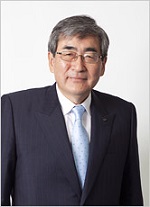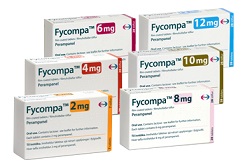 |
| Eisai CEO Haruo Naito |
It's been a hard fall off the patent cliff for Eisai, but after 5 long years, the company says it sees its operating profit climbing in its next fiscal year.
As the drugmaker's chief, Haruo Naito, said on Thursday's Q4 conference call, Eisai expects to see operating profit leap 62% to ¥46 billion ($386 million) in the year ending next March, and "cost management--a very stringent cost management"--will help it get there.
That'll mean about ¥12 billion in cost-cutting, Japanese newspaper Nikkei reports, with the company paring down R&D expenses as well as SG&A costs. And on the sales and admin front, those cuts have already begun to take shape in the U.S., where the company last month announced it would be chopping about 215 jobs.
After the business remodeling there, "it's going to be a laser-focused commercial mix,"' Naito said.
But the penny-pinching will happen elsewhere, too, the helmsman said; Eisai will be reevaluating its "investments in strategic markets"--emerging markets such as Russia, Brazil and Mexico--and cuing "fundamental cost structure reform through elimination and combination of operations."
Of course, the Japanese pharma would also like to see its new meds gain traction, and they will, the company predicted--if only by a touch. Eisai forecast a revenue increase of 1.5% to ¥556.5 billion, which will depend on the success of cancer-fighters Halaven and Lenvima, obesity therapy Belviq and seizure med Fycompa.
With Halaven and Lenvima, Eisai will simply need to keep the ball rolling to record growth. Halaven hauled in ¥35.3 billion in the last fiscal year, good for a 23% increase over the previous year. And Lenvima, which launched in the U.S. in February, has been making steady progress, Naito said.
 |
With Belviq and Fycompa, though, it's been a different story, with both meds underperforming targets in in the past year despite "very proactive, significant" commercial investments, Naito said.
Belviq, for one, is part of a crowded field that also contains Vivus' ($VVUS) Qsymia and newcomer Contrave from Orexigen ($OREX) and marketing partner Takeda. And Fycompa has suffered pricing setbacks: Last November, amid a year-plus launch delay for the drug in the U.S., Germany's cost watchdogs said they would only cover it if it was priced on par with generics.
Despite the challenges, though, the company thinks it's learned some valuable lessons in the meds' respective markets that'll help it going forward. "We now understand what are necessary to promote business in these areas," Naito said.
- see the call transcript
- get more from Nikkei
Special Report: The largest biopharma layoffs of 2014